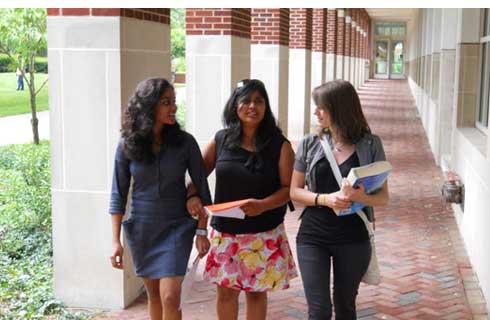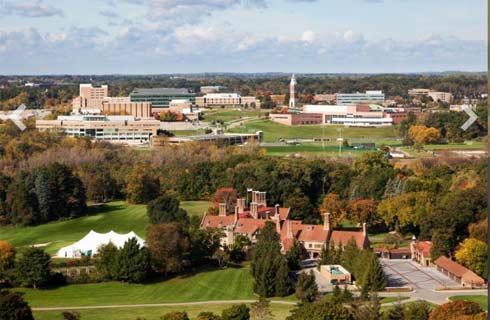运输管理理学硕士
Master of Science in Transportation Management

学历文凭
Masters Degree

专业院系
Department of Civil and Urban Engineering

开学时间

课程时长

课程学费

国际学生入学条件
IDP—雅思考试联合主办方

雅思考试总分
7.0
了解更多
雅思考试指南
- 雅思总分:7
- 托福网考总分:90
- 托福笔试总分:160
- 其他语言考试:a 65 on the Pearson PTE Academics exam
CRICOS代码:
申请截止日期: 请与IDP顾问联系以获取详细信息。
课程简介
Systems of transportation are changing rapidly in conjunction with and as a response to evolving technology, shifting human mobility patterns, increasing efforts to build toward equity, sustainability, and resilience, and the popularization of new methods of transit, like the advent of ridesharing and the spread of micromobility modes such as e-scooters and bikeshares.<br>The Tandon School of Engineering's MS in Transportation Management takes an adaptive, whole-system approach to transit which considers the logistical transportation problems of mobility in increasingly smart cities through an integrated lens.<br>Located in a city with one of the world's most complex transit systems, our campus is a gateway to an ideal laboratory for those wishing to study the discipline. Courses like Intelligent Cities: Technology Policy and Planning explore the landscape of technologies being used in urban planning and policymaking today. Together, our students and faculty focus on the fundamentals of management and the economics at play for public and private sector agencies as they interact with local, state, and national policies affect residents and businesses. Students will be exposed to concepts from a host of fields and specialities, included but not limited to data and predictive analytics, smart transportation and smart cities, urban planning and public policy, and technological innovation, and leave prepared to help build the future of transportation
相关申请
 预科
预科 奖学金
奖学金 实习机会
实习机会 在校学习
在校学习 跨境学习
跨境学习 校园授课-线上开始
校园授课-线上开始 在线/远程学习
在线/远程学习
学校排名

世界排名27
数据源:泰晤士高等教育世界大学排名
关于纽约大学

纽约大学NYU是全美最大的私立大学。 不仅如此,纽约大学NYU主校区每年会迎来2000为国际学生,纽约大学阿布扎比分校的国际生来自90多个国家,加上2013年开设的纽约大学上海校区,纽约大学NYU是名副其实的全球第一所 Global Network University。相比于522门专业,纽约大学NYU的学生普遍认为,在纽约这个全球最发达的城市所学到的街头知识同样重要。有人说,纽约大学,就是纽约本身。纽约大学提供惊人的522个专业供学生选择,其中商科类与艺术类专业尤其著名。本科阶段,你有机会从Dean’s Undergraduate Research Fund中获得250到2000美元不等的资金支持。教授会用他们的亲身经历来补充课堂上学习的内容,他们在上班时间和电子邮件里都一样平易近人。
本校相关课程

物理学哲学博士
学历文凭
Ph.D.
开学日期
课程费用总额


法学博士/哲学哲学博士
学历文凭
Double Major Degree
开学日期
课程费用总额


绩效研究哲学博士
学历文凭
Ph.D.
开学日期
课程费用总额


神经科学哲学博士
学历文凭
Ph.D.
开学日期
课程费用总额


中东和伊斯兰研究哲学博士
学历文凭
Ph.D.
开学日期
课程费用总额


大气海洋科学哲学博士
学历文凭
Ph.D.
开学日期
课程费用总额

其他相关课程

Master of Science in Management Science and Supply Chain Management (Thesis)
 威奇托州立大学
威奇托州立大学学历文凭
Masters Degree
开学日期
课程费用总额


Bachelor of Science in Transportation Design
 罗伦斯科技大学
罗伦斯科技大学学历文凭
Bachelor Degree
开学日期
课程费用总额


Bachelor of Science in Business Administration - Supply Chain Management
 科罗拉多州立大学
科罗拉多州立大学学历文凭
Bachelor Degree
开学日期
课程费用总额


工商管理哲学博士-供应链和信息系统
 宾州州立大学帕克分校
宾州州立大学帕克分校学历文凭
Ph.D.
开学日期
课程费用总额


Graduate Certificate in Maritime Transportation
 斯蒂文斯理工学院
斯蒂文斯理工学院泰晤士高等教育世界大学排名:560
学历文凭
Graduate Certificate
开学日期
课程费用总额


商科学士(电子供应链管理)(荣誉学位)(合作社)
 亚岗昆学院
亚岗昆学院学历文凭
Bachelor Degree with Honours
开学日期
课程费用总额


























